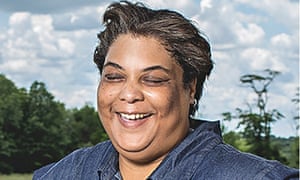Comfort women: The human face of war in Korea
Peace & Justice November 20, 2017
PC(USA) peace delegation visits South Korea’s War and Women’s Human Rights Museum
by Kathy Melvin | Presbyterian News Service
 SEOUL, South Korea — War has a human face. Every shadow, every line, every wrinkle is part of the story.
SEOUL, South Korea — War has a human face. Every shadow, every line, every wrinkle is part of the story.A PC(USA) peace delegation visited the War & Women’s Human Rights Museum during their recent visit to South Korea. They watched video interviews with the “comfort women”, who spoke no English. Although there were English subtitles, they weren’t necessary. Their faces said everything.
Estimates are that as many as 200,000 women were kidnapped or lured by the promise of jobs and forced into sexual slavery in “comfort stations” for Japanese soldiers during World War II. Most of the women came from the Korean Peninsula. Some women came other Southeast Asia countries including Thailand, China and the Philippines. Some were as young as 14. “Comfort women” became a derogatory term, so they are now known as “halmoni,” or grandmother. The handful still living in South Korea are in their 80s and 90s.
The halmoni suffered in silence for many years. Many never returned to Korea. Those that did said nothing out of shame. Their stories began to emerge with the founding of the Korean Council for Women Drafted for Military Sexual Slavery by Japan on Nov. 16, 1990. The halmoni and their supporters began protesting outside the Japanese Embassy in Seoul in 1992. They are asking Japan to acknowledge the crime, make an official apology, provide legal reparation and record the stories in the country’s official history.
In 2011, they held their 1,000th protest. There are still there every Wednesday.
Down an alley in a 30-year-old house in Seongsan-dong, west of the city, the history of these women is carefully documented. The space is small, only about 15 rooms and areas, but the impact is powerful. After an introductory video, visitors walk on a gravel road with sounds of cannon’s and soldier’s footsteps that lead to a dark basement to simulate the feeling of isolation and oppression the women felt. There is another room in which visitors can follow the movement’s history containing research materials and video footage. The focal point of the room is a replica of a peace statue that depicts a young girl with an empty chair next to her. The original statue faces the Japanese embassy. Comfort women statues have emerged around the world, including one in San Francisco.
 The entry ticket to the museum changes daily with real stories of the victims. On November 1 it was Bong Gi Bae, born in Yesan Chungcheongnam-do in 1914.
The entry ticket to the museum changes daily with real stories of the victims. On November 1 it was Bong Gi Bae, born in Yesan Chungcheongnam-do in 1914.Promised the ability to earn “big money,” she was taken to Tokashki Okinawa in 1943 and forced into sexual slavery, assigned to a comfort station. When U.S. troops bombed the comfort station she ran away with Japanese soldiers to the mountains. She was later detained in a US prison camp. After her release, she earned a living through prostitution and menial labors. In 1975 her story was published in a regional newspaper. In 1991, she passed away at the age of 77 in Okinawa. She never returned home.
Quantisha Mason, a recent graduate of McCormick Seminary, spent 2013-2014 as a Young Adult Volunteer in Korea. She joined the peace delegation and made her second visit to the museum, which opened in 2012.
“I’ve been here a couple of times and it doesn’t get any easier,” she said. “When we hear about war, it’s always something that men do, but women’s bodies are a battlefield too and the battle is happening in lots of places around the world. I don’t think we can begin to realize the strength it takes to harbor this anger for so many years and remain silent. I don’t know how they lived with it.”
The Rev. Howard Kim, pastor of the Korean Presbyterian Church of South Bay, was born in Korea, but it was his first time at the museum. “I felt strong humility for what had been done and that we can still repeat those kinds of inhumane acts against fellow human beings’ other places in the world,” he said. “It was sad and depressing.”
Images of yellow butterflies are all around the museum. The Butterfly Fund was chosen as a symbol of hope to women suffering from sexual violence in armed conflicts. In the museum’s printed materials, it says, “The butterfly represents our wish that all the women in agony, including the victims of Japanese military sexual slavery, would be able to spread their wings free from discrimination, repression and violence.”
On March 8, 2012, International Women’s Day, halmoni Bok-dong Kim and Won-ok Gil made a pledge to donated their entire legal reparations from the Japanese government once they receive them. This was the beginning of the Butterfly Fund. The fund is currently supporting victims in the in the Democratic Republic of Congo and Vietnam.
The first recipient was Rebecca Masika Katsuva, who lives in Congo. In 1988, during the Congo civil war, Maskila and her 9 and 13-year-old daughters were gang raped by soldiers. Her husband was killed. The following year she created “Listening House” to care for women who had gone through similar experiences and children born of forced pregnancy. Her mother helped her at the shelter for but was later raped and murdered.
The Korean Army participated in the Vietnam War from September 1964 to March 1973 and was accused of massacring and sexually assaulting civilians. The butterfly fund is now helping victims of sexual violence by Korean soldiers in Vietnam.
The peace delegation traveled to South Korean November 1-8, in response to Overture 12-01 and Commissioner’s Resolution 12-13, adopted at General Assembly 222 (2016) Portland, focusing on the reunification of the Korean Peninsula and the need to build upon the increasing momentum toward peace.
Leading the delegation was the Rev. Dr. J. Herbert Nelson II, Stated Clerk of the Office of General Assembly (OGA). He was joined by the Rev. Jose Luis Casal, director of Presbyterian World Mission, the Rev. Robina Winbush, assistant stated clerk and director of OGA’s office of ecumenical relations and the Rev. Mienda Uriarte, coordinator of World Mission’s Asia-Pacific office. The Rev. Ed Arnold and the Rev. Ed Kang, members of Cayuga-Syracuse Presbytery, originators of the overture also attended, as well as several OGA and PMA representatives.
Resource materials are currently being developed by the Rev. Unzu Lee and will be available on the PC(USA) website early next year.

 'The more I write, the more I put myself out into the world as
'The more I write, the more I put myself out into the world as 
 Photograph: Alena Silkova/Alamy
Photograph: Alena Silkova/Alamy
